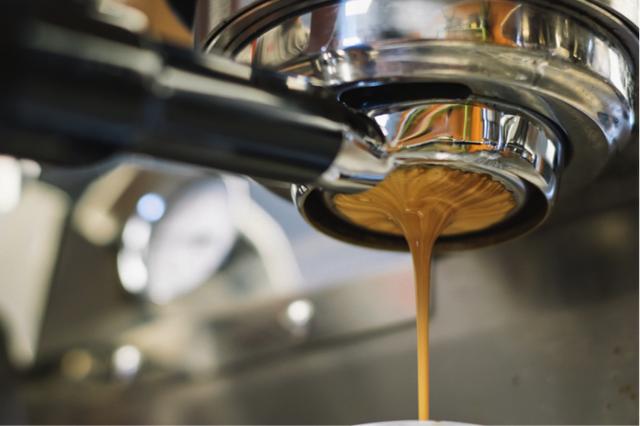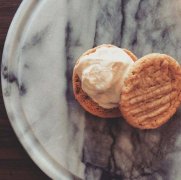History, culture, stories and allusions of Panama's Elieta Manor Saint Boutique Single Bean

Professional barista communication, please pay attention to coffee workshop (Weixin Official Accounts cafe_style)
History, culture, stories and allusions of Panama's Elieta Manor Saint Boutique Single Bean
RENACIMIENTO
Renacimiento is a region in the province of Chiriqui, bordering Costa Rica. The area itself is relatively small, so it is not Panama's main specialty coffee producing area.
Altitude: 1,100- 1,500 m
Harvest: December-March
Breeds: Typica, Caturra, Catuai, Bourbon, Geisha, San Ramon
Details:
products Name: Panama Santa Clara Fox Estate Wash SHB
(Panama MC Santa Clara Eleta SHB Washed)
production Area: Santa Clara
Zhuang Garden: Fox Manor (Finca Eleta)
products Species: Caturra
sea Pull: Average 1600 m
such Level: SHB
Treatment: water washing treatment
Harvest period: N/A
recognize Evidence: N/A
Flavor Features: Butter bread, apricot kernel sweet, cane sweet, sour round, complex aroma, moderate sour and sweet, pleasant taste.
Introduction:
Coffee was introduced to Panama in 1780, when Europeans brought in the first Typica species. After this mysterious and strange drink conquered the senses of Panamanians, the locals began to cultivate it. Panama coffee is smooth, full and light, with a perfect balance of acidity. Its fine coffee beans are pure in flavor and full of character. Medium roast is recommended. Many buyers like to mix Panamanian beans, and almost all of the premium coffee beans are shipped to France and Finland.
Everyone's favorite taste is not necessarily,
Consider buying small quantities to try different baking degrees.
A burst of beans
One blast ends with a bean.
From the end of the first explosion to the end of the second explosion, the beans are in the middle.
Touch the next bean with two explosions
10-15 seconds into the second explosion.
Second explosion dense next bean
I hope you baking experts find something better.
Panama's main coffee producing areas are:
1. Boquete: This region produces a large quantity of coffee of high quality, and is the region with the largest production and best quality of coffee in Panama.
2. Volcan: The coffee produced here is characterized by a mild and balanced taste, which has gradually attracted the attention of international connoisseurs and coffee lovers, and is believed to soon be on par with Boquete.
3. Santa Clara: Fertile coffee plantations watered by the clear waters of the Chorera Falls, and the proximity of the Panama Canal allow fresh, pure Panamanian coffee to be easily exported around the world.
4. Piedra de Candela: The most promising region has the potential to develop high-quality premium coffee.
Panamanian coffee is the hottest country in Central America in the last 5- 6 years, mainly because of the Peterson family's Panama Emerald Estate.(Hacienda La Esmeralda) Geisha, a coffee tree planted, drives coffee lovers crazy, so Geisha is called the world's top coffee bean. It is also for this reason that Panama Coffee Cup auction is independent of Central and South America Cup auction and is also the earliest bidding country held in mid-May every year. Panama coffee is not only impressive in Geisha varieties. In the middle of the green bean processing process is also constantly updated not only the traditional water treatment, but also the most popular honey treatment in neighboring Costa Rica, but also the gradual formation of sun beans in Central America, Panama coffee is also produced in small quantities, attracting the attention of coffee people all over the world.
Café de Eleta is located in a small area of Santa Clara, just one kilometer from the Costa Rican border, near La Amistad International Park, a major virgin forest reserve that belongs to Central America. Estates of Elieta began to acquire land in the 1970s, covering an area of about 130 hectares, initially for vegetable cultivation and livestock farming, and only in 1995 for coffee cultivation, under the name Café de Elita S.A. The land area continued to expand and today it has 420 hectares, one of the largest coffee plantations in Panama and one of the best known coffee plantations in Panama. Due to the abundance of water, there is a private hydroelectric power plant of 530kW. In addition to self-contained electricity, surplus electricity is sold to the Distribubución de Electricidad ChiriquíS.A. network.
This batch of coffee has the purest original flavor. Because the coffee washed by Elieta Manor SHB is extracted from high-altitude Kaduai coffee beans, with strong fruit fragrance, flavor characteristics: butter bread, apricot kernel sweet feeling, cane sweet, sour round, complex aroma, moderate sour and sweet taste pleasant.
Breed: Cadura
Estate: Illeta Estate
Flavor: Butter bread, apricot sweet, sour round
Panamanian coffee is the hottest country in Central America in the last 5- 6 years, mainly because of the Peterson family's Panama Emerald Estate.(Hacienda La Esmeralda) Geisha, a coffee tree planted, drives coffee lovers crazy, so Geisha is called the world's top coffee bean. It is also for this reason that Panama Coffee Cup auction is independent of Central and South America Cup auction and is also the earliest bidding country held in mid-May every year. Panama coffee is not only impressive in Geisha varieties. In the middle of the green bean processing process is also constantly updated not only the traditional water treatment, but also the most popular honey treatment in neighboring Costa Rica, but also the gradual formation of sun beans in Central America, Panama coffee is also produced in small quantities, attracting the attention of coffee people all over the world.
Coffee was introduced to Panama in 1780, when Europeans brought in the first Typica species. After this mysterious and strange drink conquered the senses of Panamanians, the locals began to cultivate it. Panama coffee is smooth, full and light, with a perfect balance of acidity, and its fine beans have pure flavor and character. Because of its popularity, most of Panama's premium coffee beans are shipped to France and Finland.
Panama's main coffee producing areas are:
Boquete: This region produces a high quality of coffee, making it one of Panama's most productive and high-quality coffee regions.
Volcan: The coffee produced here is characterized by a mild and balanced taste, which has gradually attracted the attention of international connoisseurs and coffee lovers, and is believed to soon be on par with Boquete.
Santa Clara: Fertile coffee plantations watered by the clear waters of the Chorera Falls, and the proximity of the Panama Canal allow fresh, pure Panamanian coffee to be easily transported around the world.
Piedra de Candela: The most promising region has the potential to develop high-quality premium coffee.
This batch of coffee has the purest original flavor. Because the coffee washed by Elieta Manor SHB is extracted from high-altitude Kaduai coffee beans, with strong fruit fragrance, flavor characteristics: butter bread, apricot kernel sweet feeling, cane sweet, sour round, complex aroma, moderate sour and sweet taste pleasant.
Caturra is a natural variant of the Arabica variety Bourbon, discovered in Brazil in 1937, and its tree is shorter than Bourbon. Due to the inheritance of Bourbon's bloodline, it has a weaker resistance, but its yield is higher than Bourbon's. Although found in Brazil, cadura is not suitable for growing in Brazil, so it is not widely cultivated in Brazil, but is widely cultivated in Central and South America, such as Colombia, Costa Rica and Nicaragua.
Perhaps you care more about the taste of kadura than about these botanical traits. The higher the elevation, the higher the quality, but the lower the yield. When Kadura is lightly roasted, the sour aroma is obvious, and the overall brightness is bright. Under proper treatment, the sweetness can be very good, but the alcohol content of coffee is relatively low compared with bourbon, and the cleanliness of the taste is a little lacking.
Kadura is usually a red berry, but there are rare areas where yellow kadura is grown, such as Hawaii, where yellow kadura is rarely grown.
At present, the classification system of coffee beans in the world is not uniform, and each coffee producing country has its own classification system and classification name, so you may see the following words on the coffee label: "SHB","AA+","Supremo","Extra-Fancy","Round beans/small beans", etc. These are the classification names of coffee beans. Roasted beans sold on the market are sometimes labeled as single-serve coffee. The more detailed the coffee rating, the better the coffee quality. But regular coffee isn't labeled.
Factory Name: Qianjie Cafe Address: No.10 Baoan Qianjie, Yuexiu District, Guangzhou City Contact Information: 020-38364473 Ingredients List: Self-baked Shelf Life: 30 Net Content: 227g Packaging Method: Bulk Taste: Neutral Coffee Bean Ripe Degree: Coffee Ripe Bean Sugar: Sugar-Free Origin: Panama Coffee Type: Other
Panama MC Santa Clara Eleta SHB Washed
Country: Panama
Grade: SHB
Region: Santa Clara
Altitude: 1600 m on average
Treatment method: washing
Hand-washed Panama ileta. 15g powder, medium grinding (small Fuji ghost tooth knife 4 grinding), v60 filter cup, 88-89 degrees water temperature, the first injection of 30g water volume, 27 seconds of stewing, injection to 105g water volume cut off water, wait for the powder bed water volume to drop to half, then inject water slowly until 225g water volume, tail section do not, water powder ratio 1:15, extraction time 2:00
Café de Eleta is located in a small area of Santa Clara, one kilometer from the Costa Rican border, near La Amistad International Park, a major virgin forest reserve, belonging to Central American ecological habitat. Estates of Elieta began to acquire land in the 1970s, covering an area of about 130 hectares, initially for vegetable cultivation and livestock farming, and only in 1995 for coffee cultivation, under the name Café de Elita S.A. The land area continued to expand and today it has 420 hectares, one of the largest coffee plantations in Panama and one of the best known coffee plantations in Panama. Due to the abundance of water, there is a private hydroelectric power plant of 530kW. In addition to self-contained electricity, surplus electricity is sold to the Distribubución de Electricidad Chiriquí S.A. network.
products Name: Panama Santa Clara Fox Estate Wash SHB
(Panama MC Santa Clara Eleta SHB Washed)
production Area: Santa Clara
Zhuang Garden: Fox Manor (Finca Eleta)
products Species: Caturra
sea Pull: Average 1600 m
such Level: SHB
Treatment: water washing treatment
Harvest period: N/A
recognize Evidence: N/A
Flavor Features: Butter bread, apricot kernel sweet, cane sweet, sour round, complex aroma, moderate sour and sweet, pleasant taste.
Café de Eleta is located in a small area of Santa Clara, just one kilometer from the Costa Rican border, near La Amistad International Park, a major primeval forest reserve that belongs to Central America. Estates of Elieta began to acquire land in the 1970s, covering an area of about 130 hectares, initially for vegetable cultivation and livestock farming, and only in 1995 for coffee cultivation, under the name Café de Elita S.A. The land area continued to expand and today it has 420 hectares, one of the largest coffee plantations in Panama and one of the best known coffee plantations in Panama. Due to the abundance of water, there is a private hydroelectric power plant of 530kW. In addition to self-contained electricity, surplus electricity is sold to the Distribubución de Electricidad ChiriquíS.A. network.
Panama Panama
Population: 3406000
Coffee in Panama is defined by how it is produced, not by geography. In the past, when coffee was widely cultivated, when the areas listed below were small and densely clustered, the beans produced could be combined into a unit.
BOQUETE
The Bok region is the most famous Panamanian region. Its mountainous terrain creates many microclimates. Cooler weather and frequent fog help slow coffee cherry ripening, and some people think this is akin to high-altitude climate.
Altitude: 400- 1,900 m
Harvest: December-March
Breeds: Typica, Caturra, Catuai, Bourbon, Geisha, San Ramon
VOLCAN-CANDELA
Candela Volcano This area produces most of Panama's food and some amazing coffee. The region is named after Baru volcano and the city of Piedra Candela, and borders Costa Rica.
Altitude: 1,200- 1,600 m Harvest: December-March
Breed: Typica,Caturra,Catuai, bourbon, geisha, San Ramon
Important Notice :
前街咖啡 FrontStreet Coffee has moved to new addredd:
FrontStreet Coffee Address: 315,Donghua East Road,GuangZhou
Tel:020 38364473
- Prev

Varieties of beans, brand recommendation and manor introduction of Ireta Manor in Panama
Exchange of professional baristas please follow the coffee workshop (Wechat official account cafe_style) Panamanian Ireta Manor single bean species, brand recommendation and manor introduction: coffee was introduced into Panama in 1780, from the first batch of Typica trees introduced by Europeans. After that, this mysterious and strange drink conquered the senses of Panamanians, and the local people began to grow it widely.
- Next

Differences, distinctions and awards of single beans in Santa Rita Manor, Colombia
For the exchange of professional baristas, please pay attention to the coffee workshop (Wechat official account cafe_style) the difference, distinction and award-winning situation of single beans in Santa Rita Manor, Colombia: Cadouai, Kaddura Manor: Santa Rita Columbia's history of growing coffee, which can be traced back to the Spanish colonial era in the 16th century, there are also many theories about the history of coffee in Colombia: one: it is said that
Related
- Does Rose Summer choose Blue, Green or Red? Detailed explanation of Rose Summer Coffee plots and Classification in Panamanian Jade Manor
- What is the difference between the origin, producing area, processing plant, cooperative and manor of coffee beans?
- How fine does the espresso powder fit? how to grind the espresso?
- Sca coffee roasting degree color card coffee roasting degree 8 roasting color values what do you mean?
- The practice of lattes: how to make lattes at home
- Introduction to Indonesian Fine Coffee beans-- Java Coffee producing area of Indonesian Arabica Coffee
- How much will the flavor of light and medium roasted rose summer be expressed? What baking level is rose summer suitable for?
- Introduction to the characteristics of washing, sun-drying or wet-planing coffee commonly used in Mantenin, Indonesia
- Price characteristics of Arabica Coffee Bean Starbucks introduction to Manning Coffee Bean Taste producing area Variety Manor
- What is the authentic Yega flavor? What are the flavor characteristics of the really excellent Yejasuffi coffee beans?

